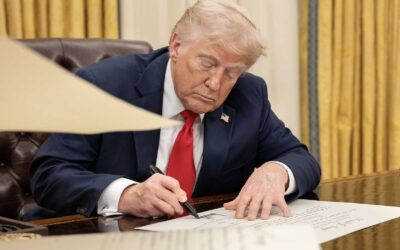
Chancellor Philip Hammond announced his 2018 budget at 3.30 pm on Monday, a little later than customary, to allow MPs to get back from a weekend in their constituencies. He held out the prospect of an end to austerity, with tax cuts and some spending boosts.
Here’s our look at the key points.
The economy
Mr. Hammond was positive about the economy. Back in March, he made growth projections of 1.5% for this year, and 1.3% in 2019 and 2020. With a shaky start to the year from a cold spring, his revised growth forecasts are just 1.3% for this year, but 1.6% in 2019, and 1.4% in 2020. He noted a booming jobs market and growing wages, and forecast inflation to average 2% next year.
With a little more in the pot, it looks as though he can afford a little generosity.
What about your tax?
The government’s manifesto included promises about tax, and the Chancellor has delivered ahead of schedule.
The personal allowance threshold, the point at which we start paying income tax, will rise from £11,850 to £12,500 in April - a year earlier than planned. The higher rate income tax threshold, where tax starts to be charged at 40% and will rise from £46,350 to £50,000. This will mean a little more money in most people’s pockets.
Even more important for low wage earners, the Chancellor increased the National Living Wage by 4.9%, from £7.83 to £8.21 an hour, from April 2019. This will mean an extra £690 a year for a full-time worker.
They might not see all the cash. Those automatically enrolled into a workplace pension will need to contribute more, with a rise from 3% of their salary now to 5% in April. The contribution from employers will go up from 2% to 3%.
Homebuying
Stretched first time home buyers could also be better off. Stamp duty relief is extended to shared ownership, so first-time buyers buying property valued up to £500,000 through the shared ownership scheme will no longer pay stamp duty. This will be backdated to 22 November 2017 – providing a welcome bonus for those already in their new home.
There will be £500m for the Housing Infrastructure Fund to enable a further 650,000 homes to be built, together with guarantees of £1bn for smaller house-builders. New partnerships with housing associations to build 13,000 homes will also be launched.
Fuel
The Prime Minister had already pledged to freeze fuel duty for the ninth consecutive year. Mr. Hammond had no surprises there - drivers will continue to pay 57.95p duty on each litre of petrol and diesel, which many will feel is already quite enough.
Drink and tobacco
Duty on spirits, beers and most ciders will also be frozen in 2019. Duty on most wine and higher strength sparkling cider will rise with inflation from 1 February 2019, adding around 8p to the average supermarket bottle.
Tobacco duty will also go up by inflation plus two percentage points, adding a hefty 28p to the price of a packet of cigarettes.
Business
There are winners and losers in the business community. Losers include technology companies hit by a new 2% digital services tax on UK revenues from April 2020. However, only those with global sales of more than £500m will be liable.
Winners include firms with a rateable value of £51,000 or less, which will have their business rates cut by a third over two years. An extra £900m in business rates relief for small businesses will be accompanied by £650m to rejuvenate High Streets.
In addition, the small companies apprenticeship levy will be reduced from 10% to 5%.
What about Austerity?
“The hard work of the British people is paying off. Austerity is coming to an end.”
Mr Hammond.
The budget incudes that promised extra £20.5bn for the NHS and a minimum extra £2bn a year for mental health services, together with £10m for air ambulances.
There will also be an extra £700m for councils, to help provide care for the elderly and those with disabilities, and a one-off £400m "bonus" to help schools. A £30bn package for England's roads, including repairs to motorways and potholes and a 30% growth in infrastructure spending have been promised.
Mr Hammond also suggested that there would be a ‘Brexit deal Dividend’ which would provide further funding – but made it clear that the Spring Statement next March could be upgraded to full Budget if needed. So, any more easing of austerity looks to be conditional on a Brexit deal, which might be a way of putting pressure on a divided Conservative Party to back Theresa May.
What will it all mean to you?
Whether you are a winner or loser in this budget, any financial decisions based on it need to be considered carefully. At Continuum, we would be happy to provide the support you need for your own personal budget plans.
The value of investments can fall as well as rise and you may get back less than you invested.
Your home may be at risk if you do not keep up repayments on a mortgage or other loan secured on it.
Tax treatment varies according to individual circumstances and is subject to change
Book a free initial consultation
Book an initial consultation with one of our independent financial advisers or call us on 0345 643 0770 if you would like to discuss further.
Sources:
uk.reuters.com - UK austerity ending, as long as Brexit deal gets done: Hammond - 29th October 2018
bbc.co.uk - Summary of Budget 2018: Key points at-a-glance - 29th October 2018


